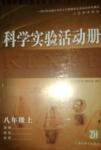题目内容
Eleven-year-olds are to learn Shakespeare using the approaches taken by actors, and English teachers will be encouraged to let pupils walk around the classroom rather than read the plays while pupils are sitting at their desks.
Within the English curriculum(课程) you tend to look at a play text as a piece of literature rather than performance. But you can’t possibly understand Shakespeare’s language if you’re just reading it in your head. Shakespeare is difficult; it’s not a 21stcentury text. You have to use different ways to understand it.
The new teaching way focuses on how actors come to understand Shakespeare’s language. In fact actors have the same nervousness about Shakespeare’s language as young people in schools do. But in six to eight weeks they get to a place of complete confidence about the play. Pupils can do as well.
Exercises devised are to let children aged 11 to 14 imitate the methods of professional actors. Written and oral assessments developed alongside the lessons will show how well students have understood the texts.
In one task pupils will work on creating four key physical figures of king, warrior(勇士), lover and joker, finding which lines of their chosen character go with those features first and then acting them out. Through this they can examine how a character such as Macbeth can switch dramatically within one scene from soldier to kingly figure to trick planner. It’s really creative but you’re still getting a really wonderful model of understanding. It’s miles away from a “chalk and talk” method.
Educators think Shakespeare should be a central part of every young person’s education. Developing a love of Shakespeare at a young age often leads to a lifelong passion for literature and helps to improve a child’s reading and writing.
【小题1】How will young people learn Shakespeare?
| A.Reading them aloud. | B.Reciting them. |
| C.Cooperating with actors. | D.Acting them out. |
| A.they are pieces of literature | B.their expressions are different |
| C.ordinary people cannot understand them | D.they are performances |
| A.Chalk and talk are far away from each other |
| B.It is much better than the traditional way |
| C.Chalk and talk are quite different |
| D.By chalk and talk we can understand Shakespeare |
| A.The New Approach to Shakespeare |
| B.The Introduction to Shakespeare |
| C.How to act Shakespeare’s plays |
| D.Shakespeare’s works in the English curriculum |
【小题1】D
【小题2】B
【小题3】B
【小题4】A
解析试题分析:本文是一篇说明文,说明了十一岁学习莎士比亚使用演员的方法,英语教师让学生在教室里走来走去表演,而不是阅读。学习莎士比亚语言需要不同的方法,重点在于怎样让演员理解莎士比亚语言
【小题1】细节题,由第一段第一行Eleven-year-olds are to learn Shakespeare using the approaches taken by actors,可以知道答案,故选D。
【小题2】推理题。由第二段倒数第二行Shakespeare is difficult; it’s not a 21stcentury text. You have to use different ways to understand it.可以推出答案,所以选B。
【小题3】推理题,由第二段倒数第二行it’s not a 21stcentury text. You have to use different ways to understand it可以推出答案,所以选B
【小题4】推理题,由文章的主要意思“使用新的方法学习莎士比亚语言”可以推出答案,所以选A
考点:本篇是一篇说明文
点评:做细节题的关键是找出原文的根据,认真核查题支和原文的异同,常犯错误有:绝对化语言,范围扩大或缩小,以偏概全,张冠李戴等。推断题测试考生在阅读基础上的逻辑推理能力,要求考生根据文章所述事件的逻辑关系,对未说明的趋势或结局作出合理的推断;或根据作者所阐述的观点理论,对文章未涉及的现象、事例给以解释。考生首先要仔细阅读短文,完整了解信息,准确把握作者观点。

 科学实验活动册系列答案
科学实验活动册系列答案The Donkey Mobile Library
It is a bright morning in the Ethiopian countryside. Yohannes walks beside a pair of donkeys that are pulling a two-wheeled cart. They arrive at the agricultural town of Awassa where Yohannes opens the sides of the cart to display, not the usual vegetables or tools, but children’s books. This is the Donkey Mobile Library, the first of its kind in Ethiopia and one of only a few in the world.
Yohannes was born in Ethiopia, North Africa, but trained to be a librarian in the USA and returned to Ethiopia years ago. The cart is full of picture books donated by American libraries, teachers and school children.
Yohannes arranges small painted benches in the shade of the trees, and suddenly Ethiopian children come shouting and racing down every road and path. It’s mobile library day! They circle the bookshelves with great excitement. Until the Donkey Mobile Library began its regular two-monthly visits, many of these children had never seen a book.
“Without books, education is very dull, like food without salt. You can survive but you can’t really come alive,” says Yohannes. “The ability to read is the basis for greater productivity, better health and longer life. Even though the children lack material goods, with books they can imagine a world of possibilities.”
Yohannes first worked in the children’s section of the main library in America. Surrounded by books he had never seen before, he realized how joyful and imaginative children’s literature is. He says, “I always thought of Ethiopia. But how could I bring children’s books to my home country when it had almost no libraries to keep the books in?”
He contacted Jane Kurtz, a writer born in America but brought up in Ethiopia, and together they created the Donkey Mobile Library. The children say that the Library has given them ideas about what they might do in the future. A child called Dareje wants to be a scientist and find a cure for life-threatening diseases. An eleven year-old girl, Fikerte, wants to do research about the moon and discover new facts about outer space. Tamrat, aged 10, comes every time.
“What brings you back here time and time again?” the librarian asks him.
“The stories,” Tamrat replies instantly.
【小题1】How do the children feel when they see the Donkey Mobile Library?
| A.Curious. | B.Surprised. | C.Interested. | D.Excited. |
| A.Ethiopian children have no idea about their future |
| B.Yohannes and Kurtz share similar life experiences |
| C.donkey carts in Awassa usually carry vegetables and tools |
| D.most books in the Donkey Mobile Library were bought in America |
| A.visits the countryside every day | B.benefits Ethiopian children a lot |
| C.was created by Yohannes himself | D.was the first of its kind in the world |
| A.A news report. | B.A book review. | C.A historical story. | D.An advertisement. |